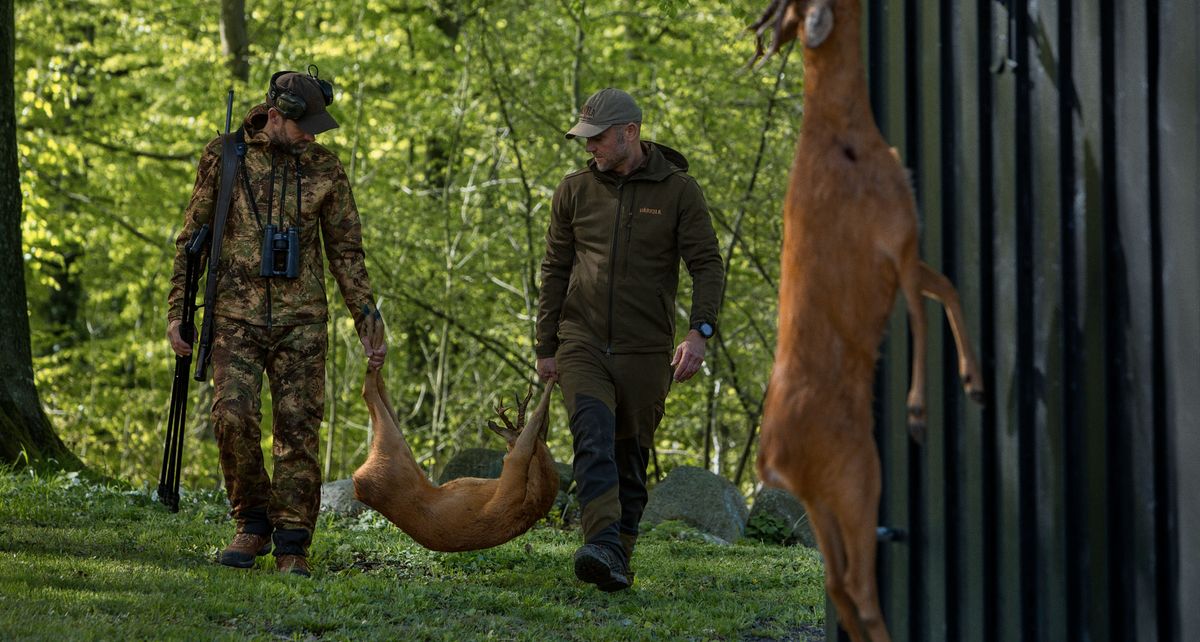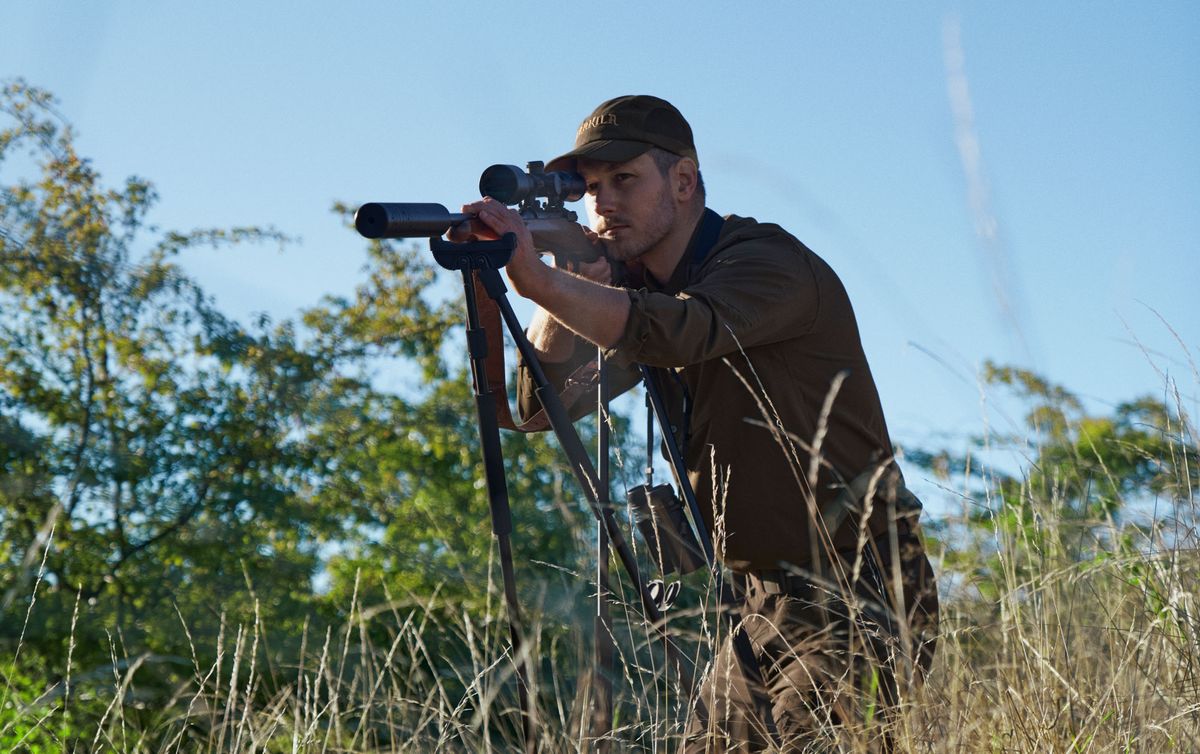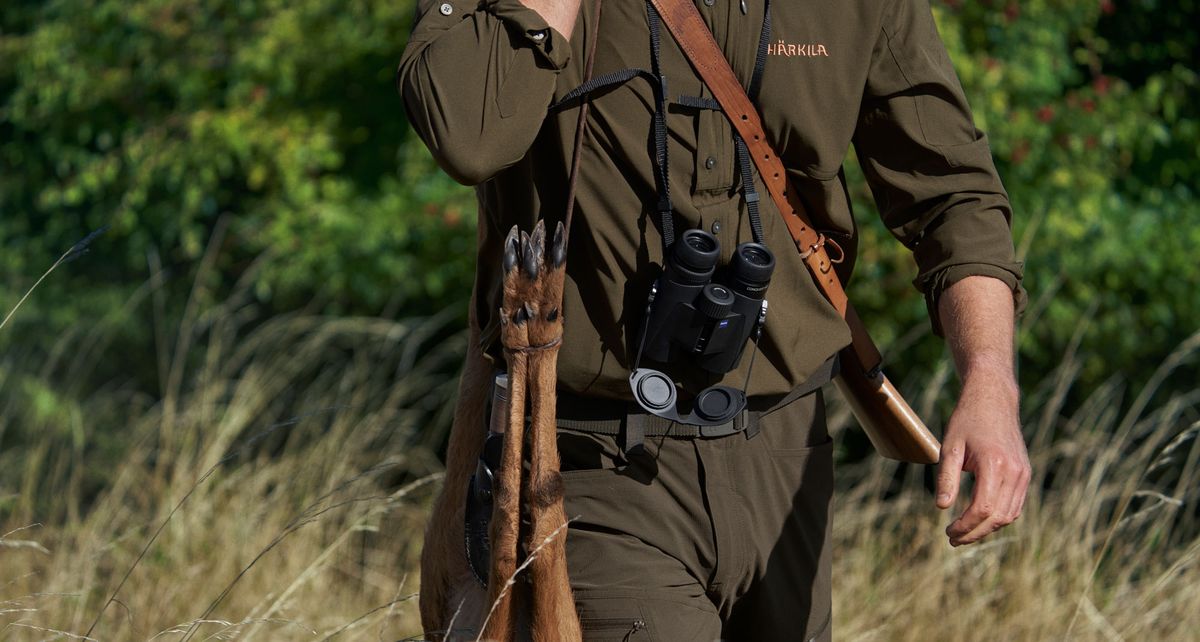Stalking
Tips and tricks for buck hunting
Buck hunting is one of the most exciting types of hunting there is. Here are some tips and tricks to help you improve your hunt.
The wind.
If you ignore the wind, you’ll end up spending many hours in the woods without ever spotting any roe deer. The wind direction is all-important. Where is it coming from as you are sneaking out to your position, and what about once you are in place? From a high tower, the wind is not such a big deal, but at ground level its role is crucial. Carry a small tin of baking powder or buy a commercial wind checker powder to easily verify the wind direction. Over the course of an evening, check the wind several times. If it changes direction and you find yourself focused on a field over which your scent is being blown, you will need to switch position.

“Sit still for a while after firing to see if a fox or anything else appears.”
- The time of day. Buck hunting is best early in the morning or in the evening. It’s as simple as that. But, of course, the bucks are around at other times. Why not try a daytime stalk? During the day, you’re more likely to want to move around stealthily than to sit and wait.
- Camouflage. Camouflage is important and may involve a spruce tree or some good camo clothing – or both. Up close, camouflage clothing can be very useful indeed, but it matters less if you are further away or up in a high tower. What is absolutely essential is ensuring your hands and face are covered, to prevent scaring the game off. Gloves and a face mask also protect against mosquitoes.
- Stay or stalk? The less disturbance you make, the better your chance of a successful hunt. In other words, staying still in one place often produces the best outcome. As to which is more enjoyable... stalking, of course.
- Use fragrance-free detergent. You should wash your clothes using an unperfumed detergent and give them a good airing prior to the hunt. Don’t expect miracles, since the deer will smell your body odour anyway, but this is far better than going out in a freshly washed garment stinking of perfume.

The mozzie menace!
Mosquitoes need a repellent, since they will ruin not only your peace of mind, but also the hunt itself, if you are sitting there waving your arms around.
Shooting stick.
Essential if you have no other support available. Practise with your preferred model and learn how to handle it quietly, both on the move and when firing.
Sit still after shooting.
A shot ringing out usually disturbs the surroundings less than you might think. Sit still for a while after firing to see if a fox or anything else appears.
Fox first!
There’s an old hunting rule about taking a fox over a buck. This is important for the long-term preservation of deer stocks.
Ground-level versus tower.
Buck shooting from a high tower does not give the same immediacy as being at ground level, so some prefer an established ground position in suitable terrain, with safe aiming available etc. On the other hand, the high position of a tower with wider views and less scent dispersal often offers more chance of success.
Getting close up.
Buck hunting is about getting close to the game. This gives it an extra kick.
Getting to know your grounds.
If you shoot buck on the same grounds year after year, half of the pleasure is monitoring the stock before the start of the season and learning about the big bucks’ movements. Get your binoculars out and start scouting!

Managing the stock properly.
What do you want the roe deer stock to look like in two, five or ten years? Manage the stock properly both during the stalking and the driving seasons.
TBE.
Do you hunt in a tick-infested area? No hunting is worth getting meningitis for. Get vaccinated against TBE before the season gets going.
Look after the meat.
It can get very hot in the end of the roebuck hunting season, which of course affects how you need to take care of the meat. Have a plan ready and don’t wait until you find yourself standing in front of a big felled buck.
- Introduce new hunters. Don’t forget to pass the hunting tradition on to the next generation. Buck-hunting is a perfect activity for the hunting novice to follow.
- Practise shooting. As with any type of hunting: practise shooting before the season starts. For many, this begins in August. Make sure you are already familiar with your weapon and how it fires with your chosen ammunition.
- Try things out! Don’t listen to everything and everyone – and that includes us! You will discover your own tips and tricks. Good luck!